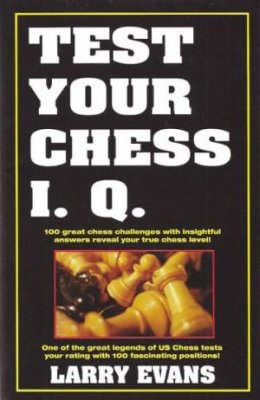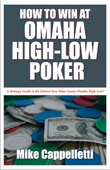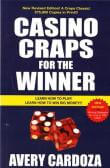Strategy books for online poker
Review of Poker Books
Published on March 10, 2008 – Categorized under Poker book critiques Add your Comment
Cardoza is a brand known for its poker expertise and quality, boasting over 200 books in its portfolio. Its founder, Avery Cardoza, is a seasoned gambler, author, and publisher of numerous gambling-related books, such as the renowned Doyle Brunson Super System. Other notable authors from Cardoza Publishing include Daniel Negreanu, TJ Cloutier, and Mike Caro.
Cardoza Games is a poker platform dedicated to its players, offering educational resources (complimentary books), loyalty incentives, and a safe and entertaining gaming environment.
This software is user-friendly, quick, and reliable. It utilizes 128-bit SSL technology to create a highly secure environment for online gaming. The system also includes robust tools to prevent collisions and various types of fraud.
The poker games on offer include Texas Hold’em, Omaha and Omaha HiLo, 7 card Stud and 5 card Stud. It boasts Cash Games, Sit and Gos, and regular tournaments. If you’re in the mood, you can also indulge in some blackjack, roulette, craps, or video poker within the same platform. The “play money” section offers free practice games.
Web-based Poker
Posted on March 10, 2008 – Filed Under How to play Poker – Leave a Comment
Alongside television, the increasing popularity of poker is largely attributed to the availability of online poker games. These games can be accessed on the internet at any time, day or night. They offer the option to play either for free or for real money, competing with players from across the globe. A vast array of ring games are available at virtually any level, in addition to thousands of tournaments. These tournaments range in size from as few as ten participants to several thousand, with buy-ins that can be free or cost thousands of dollars. This article serves as a guide to the exciting and potentially lucrative world of online poker. But first, let’s cover some general information about playing poker online.
Virtual Poker Rooms
Currently, there are in excess of 200 online poker rooms. The biggest online poker room accommodates over 50,000 participants simultaneously during peak game times. Just conduct an online search using the keyword ‘poker’ or browse through various poker-related websites, and you will soon find multiple venues to play and copious amounts of information spread across thousands of pages.
The games listed below, among others, can be easily found online:
- Texas Hold’em
- Omaha/8
- Omaha High
- Seven-Card Stud
- Pineapple
- Razz
- Five-Card Draw
- Triple Draw
Advantages of Online Poker
Participating in poker games online is an excellent method to acquire skills, and it’s more cost-effective than visiting a physical card room. In traditional card rooms, often referred to as B&M, most players tend to tip the dealer upon winning a hand and also frequently tip the servers who bring them food or drinks. However, when playing online, there’s no need for tipping. Therefore, these costs, along with the travel expenses tied to in-person play, are eliminated.
Furthermore, the number of hands you can play per hour online increases as there is no need for a dealer to shuffle cards, and the gameplay is quicker since most online poker platforms impose a time limit for each player’s move.
Online poker provides a fantastic platform for those who are new to poker or trying out a game they aren’t familiar with, as it allows them to enhance their skills, understand the game better, and potentially build a bankroll simultaneously. Numerous platforms provide an option to play poker at no cost, using play money. Some platforms even feature “free rolls”, tournaments that can be entered without any charges and offer real cash rewards to the victors. Additionally, many platforms have real money limits as low as .01/.02. Presently, the highest entry-level limit on any platform is 1/2.
Playing at the no-cost money tables is not of high quality, hence it is advisable to utilize them only for familiarizing oneself with the gaming software or for learning a new game. The smaller games ranging from .01/.02 to .25/.50, often referred to as micro-limits, provide a semblance of a real poker game since you play with actual money, however, the gameplay is dreadful. As you progress in levels, the gameplay gets better, but some games, even as high as 3/6 and 5/10, may include novice players, similar to a physical poker room.
Promotional Offers
The online poker industry is fiercely competitive. As previously stated, poker websites earn revenue from players through rakes (the money a card room deducts from each pot) and entry charges. The more players a website has, the more income it can generate. Consequently, it appears that every site has promotional offers to lure in new players.
Almost all websites provide a bonus on a player’s initial deposit, which can vary from 20 percent (put in $100 and get an additional $20) to 100 percent (put in $100 and receive an extra $100). These deposit rewards are typically linked to a condition that a set number of raked hands must be played. Prior to making a deposit on any online platform, ensure you have gone through the terms and conditions to fully understand what is required to obtain the bonus.
Numerous websites frequently propose reload rewards (commonly necessitating another deposit under the identical terms and conditions as an initial bonus) to existing players to persuade them to continue wagering on their platform. A multitude of players consistently switch between different sites to accumulate these bonuses (a practice commonly known as bonus hunting), which can significantly augment a player’s earnings per hour of poker gameplay. Furthermore, if you can maintain a break-even poker game, these bonuses can yield profits as you enhance your skills.
Although engaging in online poker can be thrilling and enjoyable, there are certain pitfalls you need to be aware of. In the upcoming section, we will delve into the legality of online poker rooms, as well as the strategies that should be adopted when participating in online poker.
Here are some similar books:
1) VIRTUAL POKER
2) WEB-BASED HOLD’EM POKER
3) STRATEGIES FOR SUCCESSFUL POKER
Poker on Video
Published on March 10, 2008 – Categorized under video poker literature Leave a Comment
The game commences when the player places a wager of at least one credit, either by inserting cash or, on more modern machines, a barcoded paper ticket with credit, into the machine. The player then presses the “Deal” button to receive cards. The player is then granted the choice to retain or discard one or more cards, and in return, a new card is drawn from the same virtual deck. Following the draw, the machine assesses the hand and provides a payout if the hand corresponds to one of the winning hands on the displayed pay schedule. On a standard video poker machine, payouts commence with a minimum hand of a pair of jacks. The payout for hands is determined partly by their rarity and partly by the total theoretical return the game operator decides to offer.
Several machines provide escalating rewards for the royal flush, and occasionally for other uncommon hands too, thus encouraging players to gamble more coins and increase their frequency of play.
Rules and Regulations
Video poker devices, functioning under the regulation of state authorities, are designed to produce arbitrary sequences of cards. For each round, a set of cards is created; five are dealt directly to the player’s hand, and the remaining five are dealt in sequence if the player requests. This practice is founded on a regulation from Nevada, adopted by most other states with a gaming authority. The regulation mandates that dice and cards utilized in digital games must emulate the randomness of their physical counterparts, within the computational boundaries established by the gaming authority. Prior to being made available to the public, video poker machines must pass tests to ensure they meet this stipulation. In Nevada, video poker games are obligated to mimic a deck of 52 cards, or 53 if a joker is included.
The regulations governing all video poker machines in Indian gaming establishments may not be identical to those in Nevada, given that Indian casinos are situated on tribal reservations that possess sovereignty and hold the gaming license.
Recent updates to the software have changed the way cards are dealt. Instead of dealing all 10 cards simultaneously, it now deals the first five cards initially and generates a second set of cards from the remaining 47 in the deck when the draw button is pressed. This modification was made following the discovery by players of a method to decipher the cycle of a random number generator from sample hands, allowing them to predict the concealed cards beforehand.
Types of video poker
Modern video poker machines might utilize different versions of the standard five-card draw. Common alterations include Deuces Wild, in which a two functions as a wild card and a jackpot is awarded for four deuces or a natural royal; pay schedule adjustments, where four aces with a five or smaller kicker yield a higher payout (these games often incorporate an adjective in their title like “bonus”, “double”, or “triple”); and multi-play poker, where the participant begins with a foundational hand of five cards, and every subsequent played hand draws from an entirely new set of cards, excluding the foundational hand. (Multi-play games are available in “Triple Play”, “Five Play”, “Ten Play”, “Fifty Play” and even “One Hundred Play” editions.)
In games without a wild card (non-wild games), a player engaging in five to six hundred hands each hour might on average encounter the elusive four-of-a-kind about once every hour. Meanwhile, it could take a player several days or even weeks before they receive the exceedingly rare royal flush.
Maximum payout games
Maximum payout video poker machines, also referred to as full pay games, are those that typically provide the highest payback percentage for a particular type of game. The payback percentage represents the long-term expected value of the player’s bet in percentage terms. For example, a payback percentage of 99 percent means that for every $100 bet, the player can expect to lose $1 over the long haul. Payback percentages for maximum payout games often approach or even exceed 100 percent, provided the player makes no mistakes and plays perfectly.
For instance, Full-pay Jacks or Better provides a return to player rate of 99.54 percent when executed with flawless strategy. It’s crucial to remember that hitting the jackpot (royal flush) is also an element of the “long run” in every version. One shouldn’t engage in a “full pay” video poker game with the expectation of not losing, as even after countless hands played, you’re participating in a game that gives less than a 100% payback.
Often, casinos strategically place full pay machines next to other machines that have less appealing payback percentages, leaving the task of identifying which video poker machines have full pay schedules to the player.
Typically, full pay machines are set up with a pay schedule that is only considered full pay when the maximum amount of credits is wagered. (Refer to the pay schedule tables further in this article for more information.)
Poker Omaha High Low
Published on March 10, 2008 – Categorized under Ohama poker books Post a Comment
The aim of this piece is to offer you a beginner’s guide to playing and succeeding in a loose Omaha high-low game. Loose Omaha high-low occurs when an average of five or more players view the flop. It’s an intriguing game that differs significantly from other poker variants. Its popularity has been on the rise due to the high level of action it involves. In loose Omaha high-low, the advanced player doesn’t have a significant advantage over the intermediate player, but both the advanced and intermediate players have a notable advantage over the novice player. Loose Omaha high-low is driven by hand value, implying that there is minimal bluffing or semi-bluffing involved.






